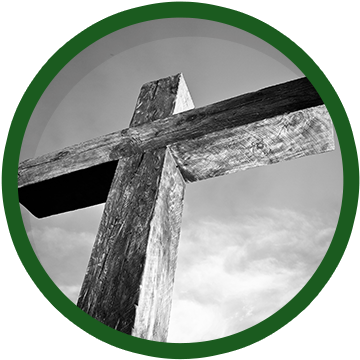Our Goal
At Peoples Baptist Academy, our goal is to partner with parents for the best interest of the child. Our school is a ministry of Peoples Baptist Church. Founded by Pastor David McCoy in 1995, it carries his philosophy that the church and school should be an extension of the Christian home. It is our goal to provide excellent academic training integrated with a Biblical view of God and the world. We uphold the precepts set forth in the Word of God as the basis for all knowledge, and we endeavor to teach students not only how to make a living but also how to live. PBA exists to assist parents in helping their children to realize that it pays to serve God!
Our Mission Statement
Peoples Baptist Academy, as a ministry of Peoples Baptist Church, exists to assist parents in their God-given responsibility of educating their young people by providing quality education in an atmosphere that is conducive both to learning and to spiritual growth. Fine arts and athletics serve to encourage students to live disciplined, Christ-centered lives and look for opportunities of service.
Our Philosophy of Christian Education
Deuteronomy 6:5-9 states:
"Thou shalt love the Lord thy God with all thine heart, and with all thy soul, and with all thy might. And these words, which I command thee this day, shall be in thine heart: And thou shalt teach them diligently unto thy children, and shalt talk of them when thou sittest in thine house, and when thou walkest by the way, and when thou liest down, and when thou risest up. And thou shalt bind them for a sign upon thine hand, and they shall be as frontlets between thine eyes. And thou shalt write them upon the posts of thy house, and on thy gates."
From the beginning of time, God made it clear in His Word that the all-day, every-day pursuit should be the knowledge of God and the ever-present awareness of a biblical worldview. This takes time, consistency, and persistence. Ideally, every parent should make this their life-long goal. Realistically, no man is an island, and the influence of Christian schools in this role can not be overlooked. In a day when homes are divided and when many parents work, the Christian school is able to provide much-needed direction.
Education, as defined by Noah Webster, "comprehends all that service of instruction and discipline which is intended to enlighten the understanding, correct the temper, form the manners and habits of youth, and fit them for usefulness in their future stations." The Apostle Paul, in II Timothy 3:16-17, under the direction of the Holy Spirit, wrote:
"All scripture is given by inspiration of God, and is profitable for doctrine, for reproof, for correction, for instruction in righteousness: That the man of God may be perfect, thoroughly furnished unto all good works."
The Christian school exists as an extension of the home in assisting parents in the training of their children, that the "whole spirit and soul and body be preserved blameless unto the coming of our Lord Jesus Christ" (I Thessalonians 5:23). Overall, the goal is to develop the whole child--spiritually, emotionally, academically, and socially.
Our Objectives
1) To teach the essential doctrines of the Christian faith
2) To lead pupils into a personal relationship with the Lord Jesus Christ
3) To develop a desire to know and to do God's will
4) To teach students consistent daily Christian living and service
5) To develop a biblical sense of right and wrong
6) To teach respect and reverence toward God and all authority
7) To help students incorporate Christian philosophy into all walks of life by integrating all subjects with the Bible
8) To promote high academic standards
9) To help students gain a command of fundamental processes in speaking, listening, reading and writing
10) To encourage formation of good study habits
11) To teach the student a method of problem solving
12) To develop creative and critical thinking skills using Bible principles
13) To foster an appreciation for God and country and the heritage received
14) To impart knowledge of the world and current events in light of the Word of God
15) To help students develop an appreciation for whom God made them to be
16) To foster wholesome personal relationships in accordance with biblical principles
17) To prepare the student for Christian use of leisure time
18) To promote physical fitness and usefulness of the body as the temple of God
Our Statement of Faith
(Matthew 28:18-20; Acts 2:41-47; 8:26-39; I Corinthians 11:26)


 CONTACT INFORMATION
CONTACT INFORMATION





